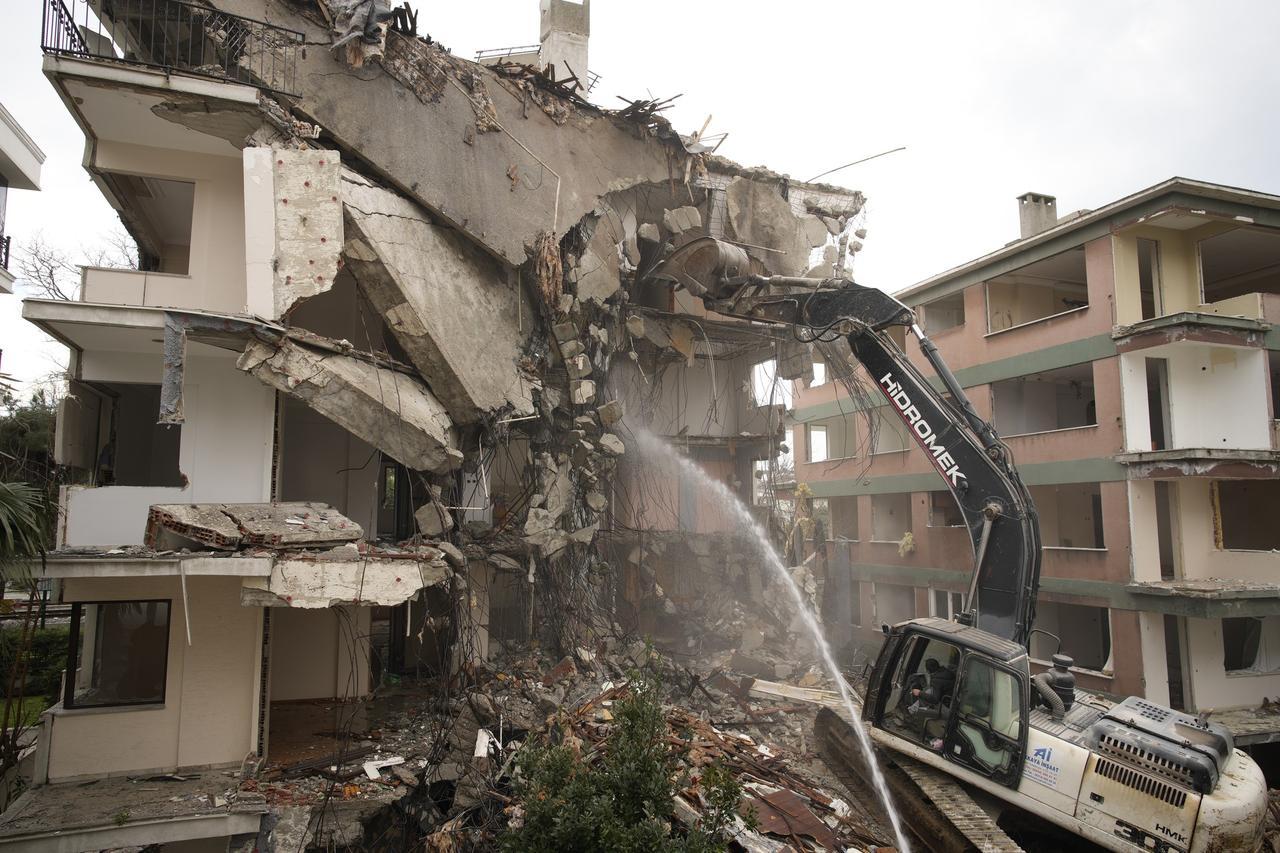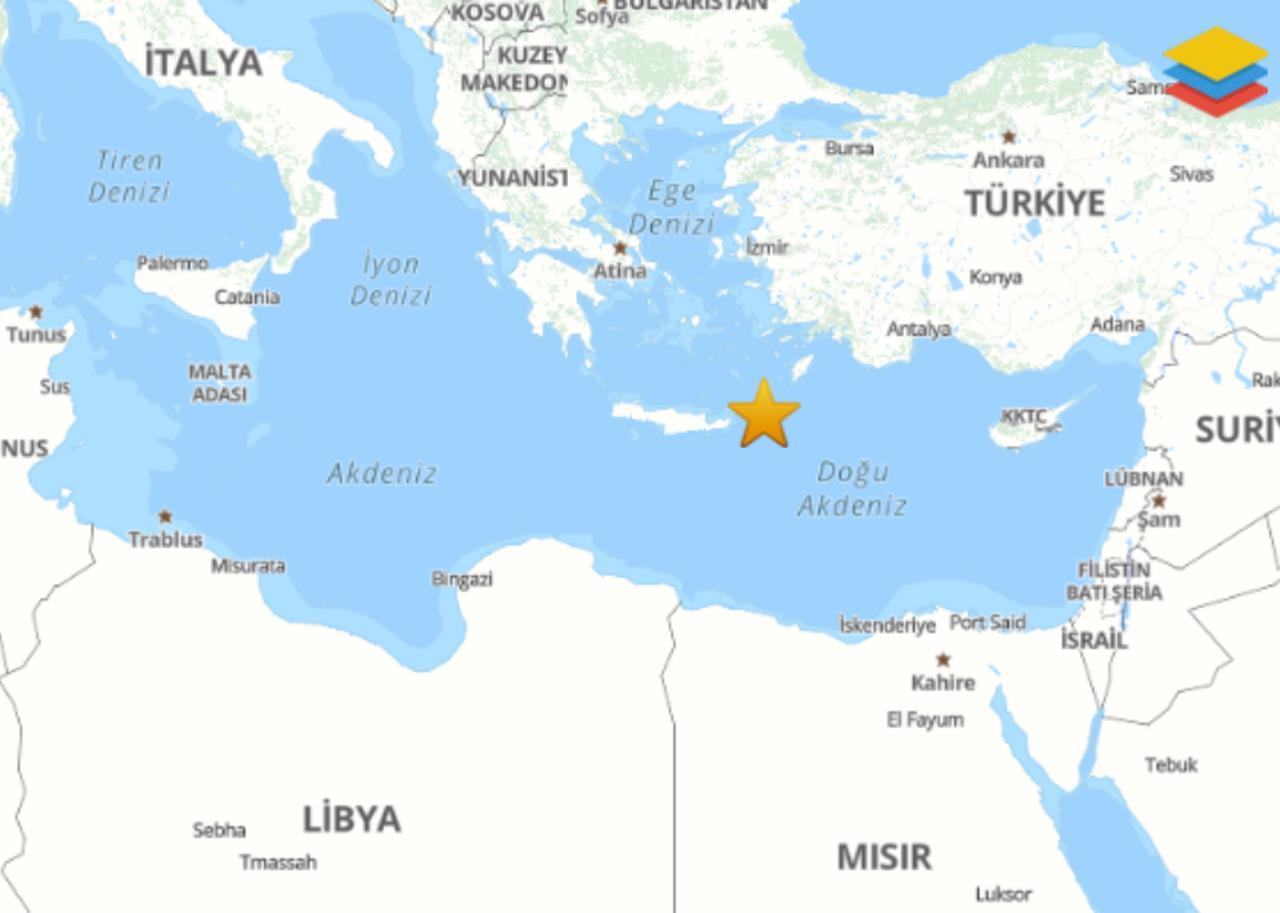
The earthquake that hit the Mediterranean Sea on Wednesday morning with a magnitude of 6.0 on the Richter scale has raised many questions in both Turkish and Egyptian academic circles.
The earthquake, which affected areas in Greece, Türkiye, and Egypt, has sparked significant concerns about the message this Mediterranean earthquake might be sending, whether there are more tremors on the way, and what magnitude the earthquakes in this region might reach.
The Athens Geodynamic Institute stated that the earthquake occurred at a depth of 35 kilometers (21.74 miles) near the island of Karpathos, east of the island of Crete in the Mediterranean.
This area is seismically active due to the slip of the African plate beneath the European plate and the presence of an active fault in the region, making it prone to earthquakes.
The institute noted that this earthquake was "relatively strong" compared to the usual seismic activity in the area, prompting Greek authorities to issue a temporary warning about the potential for a tsunami.

The earthquake has caused alarm in both Türkiye and Egypt. In Egypt, the head of the National Seismic Network stated in a press interview that there is no concern about aftershocks, as they are expected to be weak.
He explained that citizens in Cairo felt the tremor due to the nature of the soft clay soil, which was affected by the earthquake's depth despite the epicenter's distance. He reassured the public, saying, "There is no need to worry."
Dr. Taha Rabah, the head of the National Institute for Astronomical and Geophysical Research, added that aftershocks are expected to occur as a result of the earthquake.
However, he assured the public by saying, "There is no need to panic. Earthquakes are a natural phenomenon that occurs daily around the world, and we only begin to feel them when their magnitude exceeds 4 on the Richter scale."
Dr. Sherif El-Hady, head of the Seismology Department at the National Institute for Astronomical and Geophysical Research, stated in an exclusive interview with Al-Masry Al-Youm that the earthquake that occurred south of Greece and was felt by residents in Egypt was the main earthquake.
He added, "If the magnitude had been higher than 6.4, aftershocks could have occurred, but aftershocks are always weaker than the main shock, and we may feel them or not feel them at all."
In Türkiye, a 6.0-magnitude earthquake struck the Mediterranean Sea at 3:32 a.m. local time, according to Türkiye's Disaster and Emergency Management Authority (AFAD). The epicenter was located 189 kilometers off the coast of Antalya at a depth of 17.6 kilometers.
Türkiye has experienced a series of earthquakes over the past two days, starting in the Marmara region and then in the Mediterranean, raising concerns about ongoing seismic activity in the area.
Experts warn that the region remains seismically active, and faults in the Eastern Mediterranean could potentially produce earthquakes up to 9 magnitude.
Earthquake expert Sukru Ersoy stated that the recent tremor was not related to Türkiye's mainland or its territorial waters. The quake occurred south of the Greek islands of Crete and Kasos, in what he described as a "subduction zone"—an area where the African tectonic plate is diving beneath the Anatolian and Aegean plates.
Ersoy explained that this region is known for its deep earthquakes. "While earthquakes in Türkiye typically occur at depths of 20 to 30 kilometers, quakes in this area can reach depths of 70 to 80 kilometers," he said.
Authorities have urged continued preparedness and public awareness.
Experts advise citizens not to panic and to follow safety procedures during earthquakes, such as: